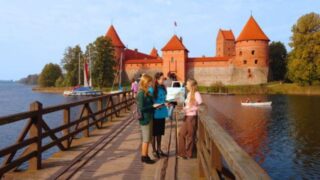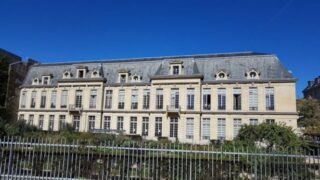The state protection of the Russian Orthodox Church monopoly and the repression of the minorities are among the most brutal in the world.
by Massimo Introvigne


The main problem of the “Donetsk People’s Republic” (“DPR”) and “Luhansk People’s Republic” (“LPR”) is that they do not exist. They are regions of Ukraine whose organization as self-proclaimed breakaway states is recognized only by Russia and its minions for their own purposes. These pseudo-states are also notable for their brutal denial of religious liberty, which sometimes makes explicit and enshrines in the “laws” and even in the “constitutions” what is implicit in Russia.
The 2014 “constitution” of the “DPR” – we refer here to the original 2014 version; it has been amended in subsequent published versions, probably also for propaganda purposes – in the world that makes fighting “cults” a constitutional principle. Article 21 of the 2014 “constitution” called for “the implementation of policies to protect the public from the activities of religious cults” (I explained at length in Bitter Winter why “секта” in Russian and similar words in other languages should be translated as “cult” and not as “sect.”)
This was based on an equally “constitutional” protection of the religious monopoly of the Russian Orthodox Church (ROC) in Donetsk. The “constitution” was drafted “professing the Orthodox faith (the Faith of the Christian Orthodox Catholic Eastern Confession) of the Russian Orthodox Church (Moscow Patriarchate) and recognizing it as the foundation of the foundations of the Russian World” (preamble). The role of the ROC as the “dominant” religion was explicitly guaranteed by Article 9, which adds that this acknowledgment is a “system-forming pillar of the Russian World.”
The consequences were spelled out in Article 22 of the “DPR constitution,” according to which “Propaganda of religious excellence is prohibited.” What this means is clear from the experience of Russia, where laws on extremism allows for the liquidation as “extremist” of religious groups teaching their “excellence” or “superiority,” i.e., that they offer a superior way of salvation with respect to other religions.
Of course, all religions teach this, including the ROC, which nobody bothers. I am a scholar of religion, and have never met a religionist greeting me with “Good morning, I am here to introduce my religion and tell you that it is not better than any other faith.” Clearly, what is forbidden, in the “DPR” as in Russia, is to proclaim that any religion is better than the ROC.


The same provision of Article 22 of the 2014 “constitution” of the “DPR” appears in an article with the same number, 22, of the “constitution” of the “Luhansk People’s Republic”: “Propaganda of religious superiority is prohibited.”
These are not mere words. As it happens in Russia, the “DPR” and the “LPR” have both banned the Jehovah’s Witnesses as “extremist.” At least 14 Kingdom’s Halls of the Jehovah’s Witnesses have been confiscated. More generally, both the “DPR” and the “LPR” enacted “laws” according to which religious groups registered in Ukraine need to re-register in the territories they control. If they don’t apply for re-registration, or the same is not granted, their activities become immediately illegal.
At the end of 2019, 195 religious organizations had been re-registered in the “LPR.” 188 belonged to the ROC, four were Muslim, and there was one each of Old Believers, Jews, and Roman Catholics. In addition to the Jehovah’s Witnesses, Baptist, Pentecostal, and Seventh-day Adventist congregations, and several Muslim communities, were consistently denied registration, as were Orthodox groups not in communion with the Moscow Patriarchate. In the “DPR,” almost all non-ROC communities were denied registration.
Non-registered communities were targeted by raids, violence, and arrests; churches and mosques have been closed or transformed into “government” offices or military facilities. All but one mosques were closed in the “DPR.” The Baptist were particularly targeted as “American agents,” although they have a century-old tradition in the region.
What is happening in the pseudo-“Donetsk People’s Republic” and “Luhansk People’s Republic” is a perfect representation of the dystopic Orthodox theocracy Putin’s ideologists have in mind for a “Russian World” whose borders they continuously expand.








